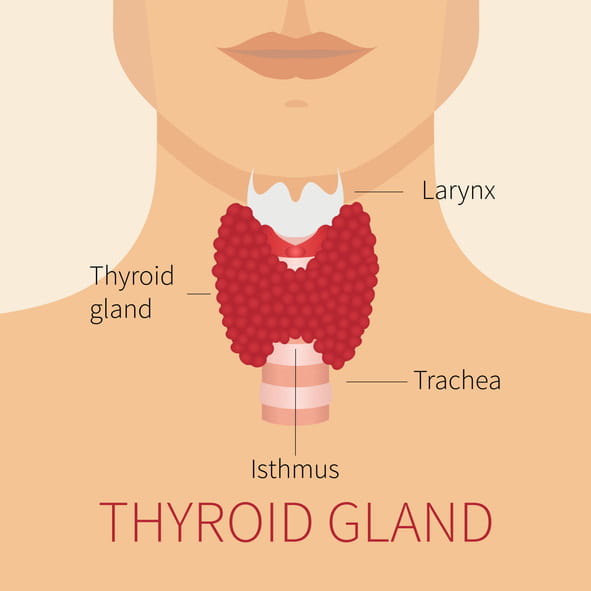What is Acquired Hypothyroidism?
Acquired hypothyroidism, sometimes called Hashimoto’s thyroiditis, is a condition that does not allow the thyroid gland to make enough thyroid hormone. The thyroid gland is found in the neck and is shaped like a butterfly.
Thyroid hormones helps with many different areas of the body such as heart, liver, kidney, skin, and even your weight and energy level.
Acquired hypothyroidism can be found in boys and girls of any age.
Acquired hypothyroidism is easily treated. Children who have untreated hypothyroidism have trouble growing, starting puberty and may effect school performance. Most children require life-long treatment.
Cause
Acquired hypothyroidism usually happens when the body’s immune system makes special cells called antibodies that damage the thyroid gland.
Sometimes the thyroid gland will swell. This is called goiter. Most of the time this will go away once a child has been on medication for a while.
Another reason the thyroid gland may not work right is because the message from the brain may not signal the thyroid gland to work due to trauma, surgery, medication, or an abnormal pituitary gland. This is called central hypothyroidism.
Symptoms
- Feeling tired
- Dry skin
- Constipation
- Weight gain
- Slow heart rate
- Slow growth
- Not starting puberty
- Periods that aren't regular
Treatment
Acquired hypothyroidism is easily treated by taking medicine every day called Levothyroxine. This medicine replaces the hormone that the thyroid gland cannot make. It is important to make sure your child takes the medicine the same way every day. Taking this medicine daily will prevent problems caused by hypothyroidism.
The thyroid medicine dose may need to be changed as your child grows. Your child's provider will let you know when the medicine dose needs to be changed by follow up visits in clinic and routine blood tests. Never change the medicine dose on your own. Your child will need to see the provider every three to six months.
When to Call the Doctor
Call your provider if you notice your child has any of the following:
- Trouble with sleep (sleeping too much or having trouble sleeping)
- Shaking
- Cold, dry skin
- Issues with weight (either losing weight or gaining weight quickly
- Diarrhea or constipation
- Hungry all the time
- Irritable
- Low energy / activity
- A girl having problems with her period
Special Instructions
Avoid taking this medication with foods that have soy or medicines with iron.What to Expect
Labs to expect:
- Thyroid Stimulating Hormone (TSH)
- Thyroxine (T4)
- Free T4
- Thyroid Antibodies
Once your child starts medication, they may feel better, have more energy, and better focus at school.




